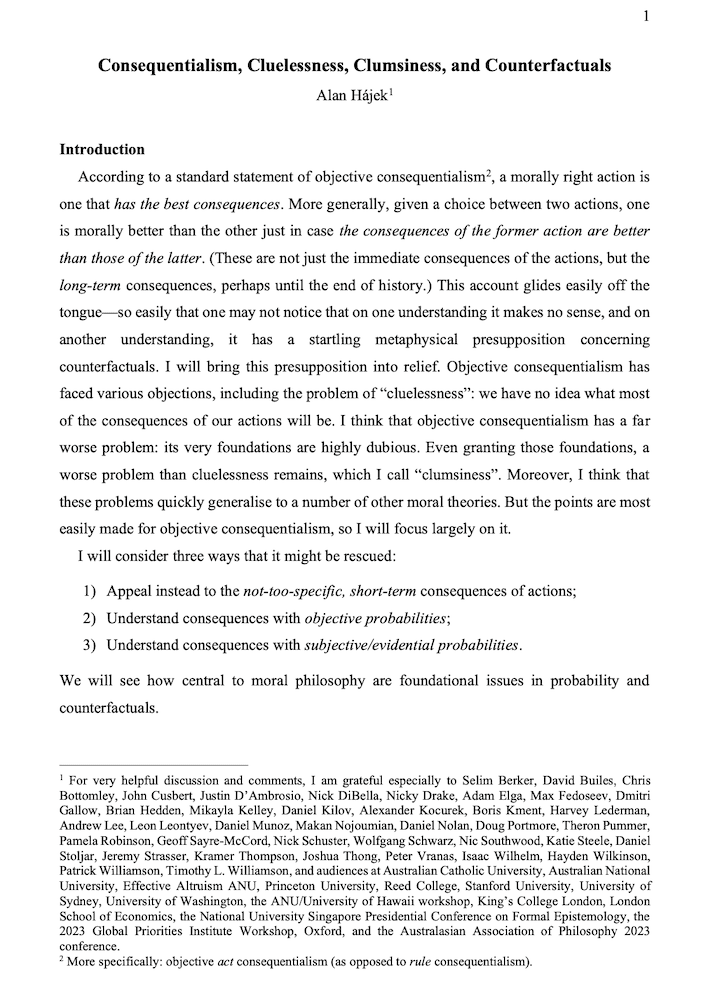Consequentialism, Cluelessness, Clumsiness, and Counterfactuals
Alan Hájek (Australian National University)
GPI Working Paper No. 4-2024
According to a standard statement of objective consequentialism, a morally right action is one that has the best consequences. More generally, given a choice between two actions, one is morally better than the other just in case the consequences of the former action are better than those of the latter. (These are not just the immediate consequences of the actions, but the long-term consequences, perhaps until the end of history.) This account glides easily off the tongue—so easily that one may not notice that on one understanding it makes no sense, and on another understanding, it has a startling metaphysical presupposition concerning counterfactuals. I will bring this presupposition into relief. Objective consequentialism has faced various objections, including the problem of “cluelessness”: we have no idea what most of the consequences of our actions will be. I think that objective consequentialism has a far worse problem: its very foundations are highly dubious. Even granting those foundations, a worse problem than cluelessness remains, which I call “clumsiness”. Moreover, I think that these problems quickly generalise to a number of other moral theories. But the points are most easily made for objective consequentialism, so I will focus largely on it.
Other working papers
What power-seeking theorems do not show – David Thorstad (Vanderbilt University)
Recent years have seen increasing concern that artificial intelligence may soon pose an existential risk to humanity. One leading ground for concern is that artificial agents may be power-seeking, aiming to acquire power and in the process disempowering humanity. A range of power-seeking theorems seek to give formal articulation to the idea that artificial agents are likely to be power-seeking. I argue that leading theorems face five challenges, then draw lessons from this result.
Population ethical intuitions – Lucius Caviola (Harvard University) et al.
Is humanity’s existence worthwhile? If so, where should the human species be headed in the future? In part, the answers to these questions require us to morally evaluate the (potential) human population in terms of its size and aggregate welfare. This assessment lies at the heart of population ethics. Our investigation across nine experiments (N = 5776) aimed to answer three questions about how people aggregate welfare across individuals: (1) Do they weigh happiness and suffering symmetrically…
The cross-sectional implications of the social discount rate – Maya Eden (Brandeis University)
How should policy discount future returns? The standard approach to this normative question is to ask how much society should care about future generations relative to people alive today. This paper establishes an alternative approach, based on the social desirability of redistributing from the current old to the current young. …
- « Previous
- 1
- …
- 35
- 36
- 37

